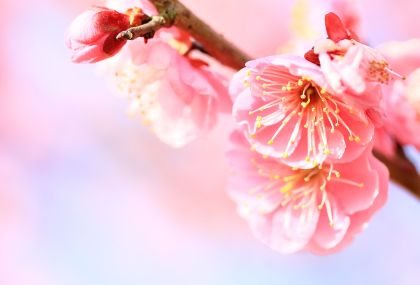New Year’s Day (元旦 – Ganjitsu)
Celebrated on January 1st, New Year’s Day is a time for family gatherings, shrine visits (hatsumode), and the enjoyment of traditional foods. It marks the beginning of the Japanese New Year.
Advice for Understanding Japan:
- Participate in Hatsumode: Join locals for a visit to a nearby shrine or temple for the first prayers of the year. This cultural tradition reflects spiritual beliefs and a fresh start for the upcoming year.
- Try Osechi Ryori: Sample Osechi Ryori, a special New Year’s meal with various dishes symbolizing good fortune, health, and happiness. It’s a delightful way to appreciate Japanese culinary traditions.
- Experience Joya no Kane: Attend a Joya no Kane ceremony at a temple on New Year’s Eve to hear the ringing of the bells 108 times, symbolizing the dispelling of worldly desires.
Coming of Age Day (成人の日 – Seijin no Hi)
Description:
Celebrated on the second Monday of January, Coming of Age Day honors those who have reached the age of 20, considered the age of majority in Japan. Ceremonies and festivities take place nationwide.
Advice for Understanding Japan:
- Observe Coming of Age Ceremonies: Attend local ceremonies or events celebrating new adults. This offers insight into the importance of reaching adulthood in Japanese society.
- Engage in Local Festivities: Participate in local parades and festivities, where you can witness the traditional attire (furisode for women, hakama for men) worn on this special day.
- Learn about Seijin Shiki: Familiarize yourself with the Seijin Shiki ceremony, where new adults express gratitude to their parents and receive words of encouragement. It emphasizes the significance of family bonds.
National Foundation Day (建国記念の日 – Kenkoku Kinen no Hi)
Description:
Celebrated on February 11th, National Foundation Day marks the legendary foundation of Japan and the accession of its first emperor, Emperor Jimmu.
Advice for Understanding Japan:
- Explore Historical Sites: Visit historical sites or museums that showcase Japan’s ancient history, providing a deeper understanding of its roots.
- Participate in Local Events: Engage in local events or parades that celebrate Japan’s cultural heritage and unity as a nation.
- Learn About Emperor Jimmu: Familiarize yourself with the stories and legends surrounding Emperor Jimmu, Japan’s mythical first emperor.
Emperor’s Birthday (天皇誕生日 – Tennō Tanjōbi)
Description:
Celebrated on the birthday of the reigning emperor (February 23rd for Emperor Naruhito), it’s a national holiday. The public is invited to the Imperial Palace for a special appearance by the royal family.
Advice for Understanding Japan:
- Attend Public Celebrations: If in Tokyo, consider attending the Emperor’s birthday address at the Imperial Palace. It’s an opportunity to witness Japanese respect for the imperial family.
- Learn about the Imperial Family: Take the time to learn about Japan’s imperial history and the role of the emperor in contemporary society.
- Engage in Cultural Activities: Participate in cultural events or activities organized in honor of the Emperor’s Birthday to experience the festive atmosphere.
Showa Day (昭和の日 – Shōwa no Hi)
Description:
Observed on April 29th, Showa Day honors the birthday of Emperor Showa (Hirohito), who reigned from 1926 to 1989. It is a day for reflection on the events of the Showa era.
Advice for Understanding Japan:
- Reflect on Showa Era History: Take the opportunity to delve into the history of the Showa era, exploring its cultural, social, and political developments.
- Visit Museums: Visit museums or exhibitions showcasing artifacts and memories from the Showa era to gain a deeper understanding of this period.
- Participate in Community Events: Join local community events that may include discussions, performances, or activities related to the Showa era.
Constitution Memorial Day (憲法記念日 – Kenpō Kinenbi)
Description:
Observed on May 3rd, Constitution Memorial Day commemorates the promulgation of the post-war constitution in 1947. It’s a day for reflection on democracy and civic duties.
Advice for Understanding Japan:
- Learn About the Constitution: Take time to study the Japanese constitution, understanding its significance in shaping modern Japan.
- Attend Civic Events: Participate in civic events or seminars that discuss the constitution, democracy, and citizenship.
- Engage in Local Discussions: Join local discussions or forums about constitutional principles and their impact on Japanese society.
Greenery Day (みどりの日 – Midori no Hi)
Description:
Celebrated on May 4th, Greenery Day encourages people to appreciate nature and be thankful for blessings. Originally Emperor Showa’s birthday, it was moved to create a holiday during the Golden Week.
Advice for Understanding Japan:
- Enjoy Nature: Spend the day in nature by visiting parks, gardens, or participating in eco-friendly activities. Understand the Japanese reverence for the environment.
- Participate in Planting Events: Join local planting events or tree-planting activities to contribute to the community and experience Japan’s commitment to green initiatives.
- Practice Hanami (花見): If cherry blossoms are still in bloom, partake in hanami picnics to appreciate the beauty of spring. It’s an opportunity to connect with locals over a shared love for nature.
Children’s Day (こどもの日 – Kodomo no Hi)
Description:
Celebrated on May 5th, Children’s Day (formerly Boys’ Day) is a day to celebrate the happiness and well-being of children. Families display Koinobori (carp streamers) and traditional dolls.
Advice for Understanding Japan:
- Explore Festive Displays: Observe the colorful Koinobori and traditional dolls displayed in homes and public spaces. Understand the symbolism behind these decorations.
- Participate in Family Activities: Engage in family-oriented activities, such as making Koinobori crafts or trying traditional sweets associated with Children’s Day.
- Learn about Tango no Sekku: Understand the historical origins of Children’s Day and its transformation from Boys’ Day (Tango no Sekku).
Marine Day (海の日 – Umi no Hi)
Description:
Celebrated on the third Monday of July, Marine Day honors the ocean’s blessings and maritime activities. Many people enjoy seaside activities and events.
Advice for Understanding Japan:
- Visit Coastal Areas: Spend the day at coastal areas, participating in seaside festivals or enjoying water-related activities. Understand the cultural importance of the ocean.
- Learn about Maritime Traditions: Explore maritime museums or attend events that highlight Japan’s rich maritime history and traditions.
- Experience Local Seafood: Savor local seafood dishes, as Marine Day often celebrates the bounty of the sea. Engage in conversations about the importance of fishing and coastal life.
Respect for the Aged Day (敬老の日 – Keirō no Hi)
Description:
Celebrated on the third Monday of September, Respect for the Aged Day honors elderly citizens. Families express gratitude and participate in various events to appreciate the elderly.
Advice for Understanding Japan:
- Engage with Elderly Community Members: Attend local events or community gatherings where you can interact with and learn from elderly community members.
- Participate in Volunteer Activities: Join volunteer activities aimed at supporting the elderly, fostering a sense of community and respect.
- Learn about Longevity Celebrations: Understand the significance of longevity celebrations in Japanese culture, and participate in activities that showcase the wisdom and experiences of the aged.
Autumnal Equinox Day (秋分の日 – Shūbun no Hi)
Description:
Celebrated around September 23rd, Autumnal Equinox Day marks the changing of seasons. It’s a time to pay respects to ancestors and engage in family activities.
Advice for Understanding Japan:
- Visit Ancestral Graves: If applicable, visit ancestral graves or participate in rituals that pay homage to departed family members. Understand the importance of ancestral ties.
- Experience Koyo (紅葉): If in a region where autumn leaves (koyo) are prominent, take a stroll through parks to appreciate the vibrant fall colors. It’s an integral part of Japan’s seasonal appreciation.
- Participate in Family Traditions: Join local families in their autumnal equinox traditions, which may include preparing special foods or engaging in nature-related activities.
Health and Sports Day (体育の日 – Taiiku no Hi)
Description:
Celebrated on the second Monday of October, Health and Sports Day promotes sports and a healthy lifestyle. Many schools and communities organize sports events and festivals.
Advice for Understanding Japan:
- Participate in Sports Events: Join local sports events or festivals, fostering a sense of community and appreciating the importance of physical health in Japanese culture.
- Explore Traditional Sports: Discover traditional Japanese sports or martial arts. Attend demonstrations or try participating to gain insights into their cultural significance.
- Experience Sportsmanship: Observe and engage in the spirit of sportsmanship and camaraderie during Health and Sports Day. It’s an opportunity to connect with locals through shared activities.
Culture Day (文化の日 – Bunka no Hi)
Description:
Celebrated on November 3rd, Culture Day honors Japanese art, culture, and academic endeavors. Various cultural events, exhibitions, and award ceremonies take place.
Advice for Understanding Japan:
- Visit Museums and Galleries: Spend the day exploring museums, art galleries, or attending cultural exhibitions to appreciate the diverse cultural heritage of Japan.
- Attend Traditional Performances: Enjoy traditional Japanese performances such as tea ceremonies, ikebana (flower arranging), or traditional theater (Noh or Kabuki).
- Engage in Cultural Workshops: Participate in cultural workshops or classes that offer hands-on experiences, allowing you to learn traditional crafts or art forms.
Labor Thanksgiving Day (勤労感謝の日 – Kinrō Kansha no Hi)
Description:
Celebrated on November 23rd, Labor Thanksgiving Day expresses gratitude for the year’s harvest and acknowledges the importance of labor and production.
Advice for Understanding Japan:
- Participate in Local Festivals: Join local festivals or events that celebrate the harvest season, expressing gratitude for the fruits of labor.
- Explore Agricultural Traditions: Learn about traditional agricultural practices and their role in Japanese society. Visit local farms or agricultural exhibitions.
- Practice Gratitude: Take a moment to reflect on and express gratitude for the efforts of those who contribute to society through their labor, fostering a sense of appreciation.
By actively participating in these holidays and following the suggested activities, you’ll not only gain a deeper understanding of Japan’s culture and traditions but also connect with locals in meaningful ways, promoting a more enriching and harmonious life in your new home.






コメント